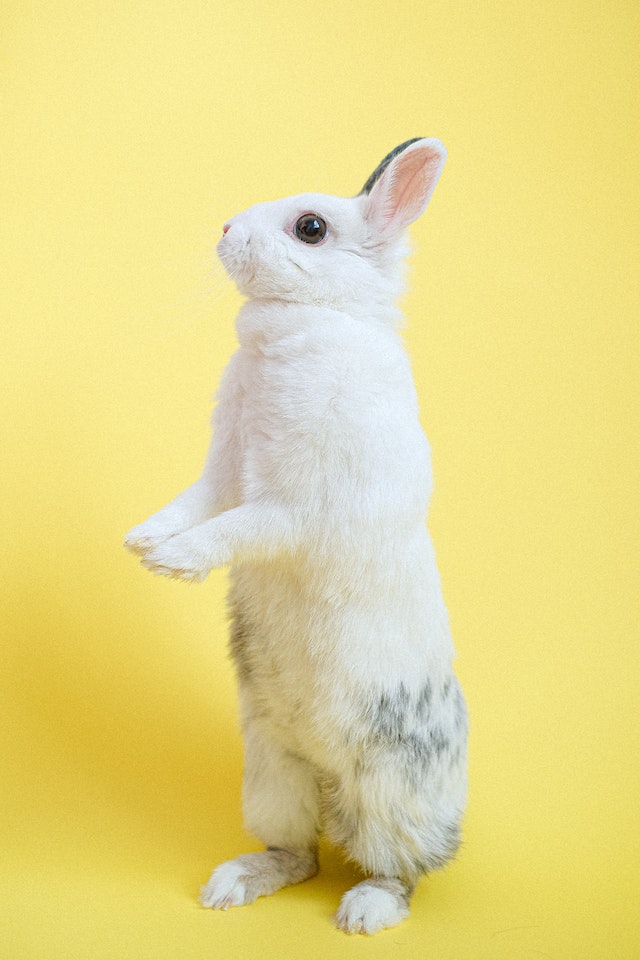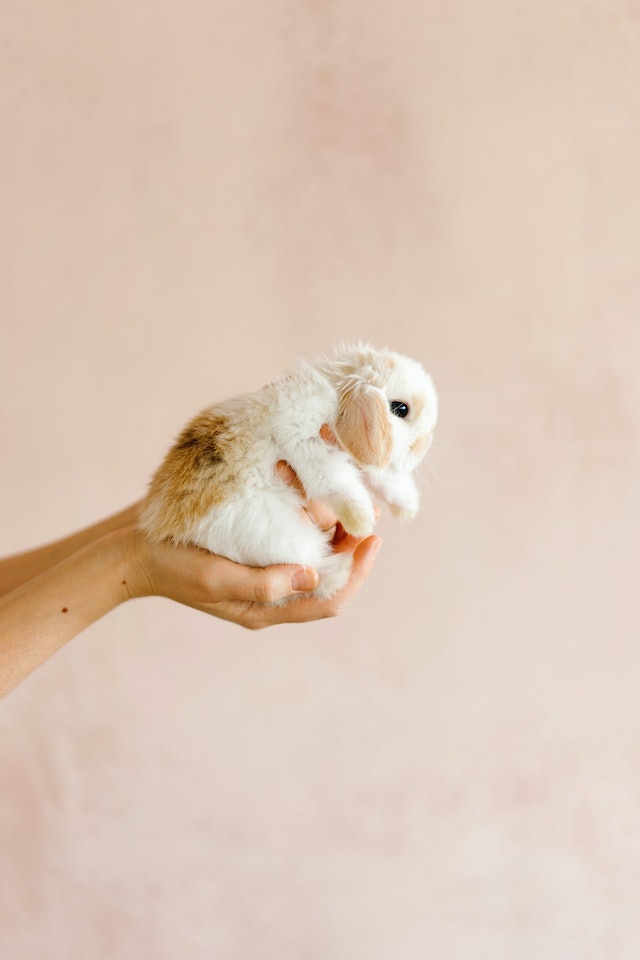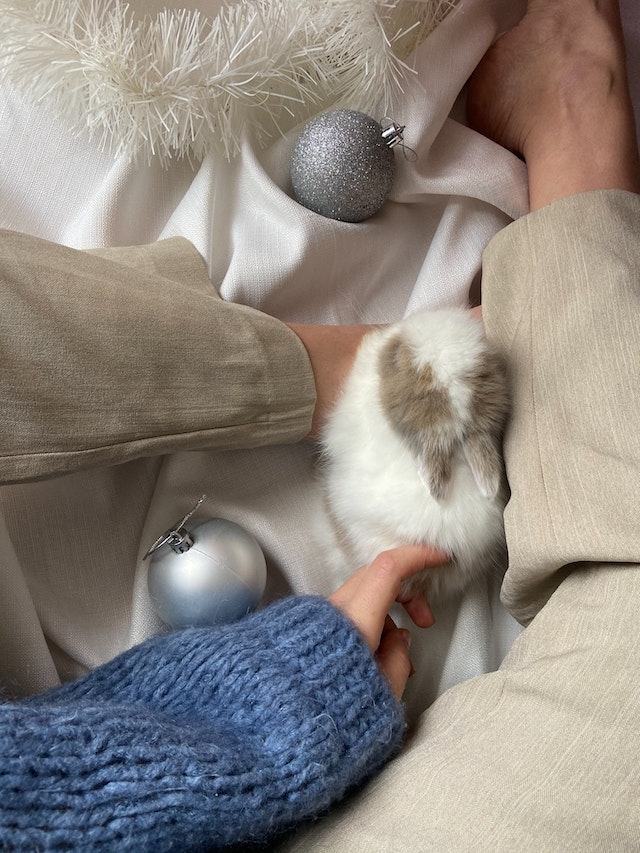Rabbits make lovely, affectionate pets that can enrich any household with their joy and company. They are an excellent choice for first-time pet owners or households with young children because they require little maintenance and are simple to care for. Rabbits have unique requirements that must be satisfied in order to maintain their happiness and health, just like any other pet. The fundamentals of caring for rabbits, such as their dietary demands, housing needs, and health issues, will be covered in this article. You can make sure that your rabbit lives a long and fulfilling life as a cherished member of your family by being aware of the needs of your furry buddy.
Rabbit care : housing
Size and type of cage
The size and style of cage are two of the most crucial factors to think about while housing your rabbit. Providing a cage that is at least four times the size of your rabbit when it is fully stretched out is a decent general rule of thumb. Accordingly, a cage that is at least 4 feet long, 2 feet wide, and 2 feet tall is optimal for a medium-sized rabbit.
Traditional wire cages, plastic cages, and hardwood hutches are just a few of the cage alternatives that are available. Each has advantages and disadvantages of its own. Although wire mesh can be rough on a rabbit’s feet and may not offer the level of privacy that some rabbits desire, wire cages nevertheless offer good airflow and are simple to clean. Although plastic cages are portable and lightweight, they can be challenging to clean and could not offer as much ventilation as wire cages. While sturdy and able to give your rabbit a more natural environment, wooden hutches can be heavy, difficult to transport, and they might not have the same level of ventilation as wire or plastic cages.
Bedding and Litter
It’s crucial to give rabbits the proper bedding and litter since they need a soft, cozy area to rest. A nice choice is to use a layer of bedding made of straw or hay and a layer of litter made of wood shavings or paper. These substances are ingestible by rabbits, easy to clean, and absorbent. Cedar and pine shavings should not be used since they can damage rabbits and cause respiratory problems.
Temperature and Ventilation
Pet care: Since rabbits are sensitive to high temperatures, it’s critical to keep their cage in a cool, well-ventilated area. Maintaining the temperature between 50 and 70 degrees Fahrenheit is a good general rule. You might need to take additional measures, such as utilizing a fan or air conditioning, to keep your rabbit comfortable if you reside in a location with extreme temperatures.
Rabbit care : diet

A. Essential Nutrients
Rabbits have unique nutritional requirements. For a healthy rabbit, a diet low in protein and fat and high in fiber is ideal. With a tiny bit of fresh produce and a few pellets, their diet should primarily consist of fresh hay.
A rabbit’s diet must include hay since it gives them the required fiber and maintains the health of their digestive system. The greatest option is grass hay because it has the most nutritious content and is the most readily available. Your rabbit’s diet should also include fresh vegetables, such as carrots, leafy greens, and other vibrant veggies.
B. Feeding Schedule
As grazing animals, rabbits need access to hay and fresh produce all day long. Only use pellets as a supplement to hay and vegetables, and only in small doses. Adult rabbits should be provided with unlimited amounts of hay and fresh vegetables in addition to 1/4 cup of pellets every day as a general rule.
C. Treats and Supplements
The consumption of too many treats by rabbits can result in obesity and other health issues. As a special treat, you may give a child a few tiny snacks like a piece of fruit or a tiny handful of dried fruit.
Importance of Physical Activity
Rabbits need to be able to regularly exercise since they have a lot of energy. Rabbits who don’t get enough exercise can gain weight, experience behavioral issues, and even experience depression. For them to maintain their general health and wellbeing, exercise is equally crucial. For the sake of their physical and mental health, make sure your rabbit has lots of room to run around and play.
Safe and Appropriate Playtime Activities
entertained. Playtime activities that are suitable and safe include:
1. provide them with a cardboard box or tunnel to explore and hide in
2. supplying a selection of secure chew toys, such as hay balls or wooden blocks
3. letting your rabbit play in a confined, watched outdoor space
4. provide a mat or scratching post for them to stretch out on and groom on You should always keep an eye on your rabbit when they are playing to guarantee their safety.
Interacting and Bonding with Your Rabbit
Since they are social creatures, rabbits enjoy interacting with people. Regular interaction with your rabbit will help to maintain their mental stimulation as well as your bond between the two of you. Following are a few ways to attach and interact with your rabbit:
- Grooming and petting them
- Talking and singing to them
- Training them to do simple tricks
- Reading or watching TV with them nearby
- Allow them to explore around the house

Regular check-ups
Although rabbits are low-maintenance pets, frequent check-ups with a vet who is knowledgeable about rabbit care are still crucial to ensuring your rabbit’s health. A veterinarian can examine your rabbit for any potential health problems and provide you suggestions on how to keep it healthy. Checking on your rabbit at least once a year is advised.
Common health issues
Numerous health concerns, including dental, gastric, and reproductive disorders, are common in rabbits. Several typical health conditions include:
- Dental problems, such as overgrown or misaligned teeth
- Digestive issues, such as hairballs or constipation
- Reproductive problems, such as uterine cancer or ovarian cysts
- Respiratory problems, such as snuffles or pneumonia
- Parasites, such as mites or fleas
- Skin problems, such as fur mites or ringworm
Signs of illness
It’s critical to recognize the symptoms of disease in rabbits since they are adept at masking their suffering. Here are several indicators that your rabbit might be ill:
- Loss of appetite
- Diarrhea
- Constipation
- Weight loss
- Lack of energy
- Discharge from the nose or eyes
- Difficulty breathing
- Unusual lumps or bumps on the skin If you notice any of these signs, it’s important to contact your veterinarian right away.
Rabbit care : Grooming
Brushing and Bathing
Although rabbits frequently groom themselves, they do occasionally need assistance. Regular brushing will assist to eliminate loose fur and stop hairballs in your rabbit. Compared to short haired rabbits, long haired rabbits will need to be brushed more frequently. Although rabbits don’t often need to be bathed, you can give them a sponge bath with a damp towel if they get very dirty.
Nail Trimming
The nails on rabbits grow quickly, so it’s important to clip them frequently to keep them from getting too long and hurting or irritating the animal. When trimming your rabbit’s nails, it’s crucial to be gently and to avoid cutting into the quick (the pink portion of the nail), since this may result in discomfort and bleeding.
Dental Care
Rabbits need to be able to crush their growing teeth down by chewing since they have continual tooth growth. To keep their teeth at a healthy length, give your rabbit lots of hay and chew toys. Even so, it’s crucial to get your rabbit’s teeth examined by a vet on a regular basis to make sure they’re not suffering from any dental problems like overgrown or misplaced teeth. These problems may call for professional help and lead to discomfort and trouble eating.
In conclusion, providing your animal buddy with the correct care is crucial to ensure their happiness and health. To give your rabbit a pleasant and exciting environment, you must first understand their needs. When caring for a rabbit, it’s crucial to take into account housing, feeding, exercise, socialization, health treatment, and grooming. For a rabbit to be healthy, they must have enough space, a balanced food, frequent exercise, sociability, checkups, and correct grooming. You can make sure that your rabbit will be a devoted and loving friend for many years to come by giving them the proper care and attention.



